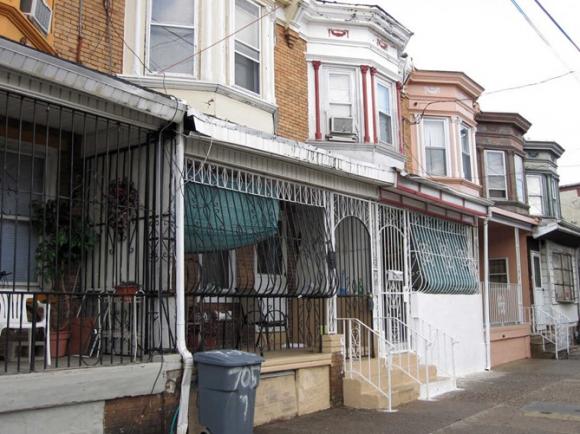
With funding from the Legislature, Rutgers Law School and Seton Hall Law School established the New Jersey Housing Justice Project at the start of the 2021-22 academic year. In addition to expanding individual representation for tenants, the Housing Justice Project advocates for broader social change, including work in the area of the implementation of landlord-tenant reform and equity impact analysis in the landlord-tenant arena.
At Rutgers Law School in Camden, the Housing Justice Program includes the Eviction Prevention Pro Bono Project and the Housing Advocacy Clinic and includes Adjunct Clinical Professor Anne Mallgrave, Esq., who serves as Director of both the Eviction Prevention Pro Bono Project and Housing Advocacy Clinic, Visiting Professor Caryn Schreiber, Staff Attorney Ashley Maddison, Director of Pro Bono Programs Pam Mertsock-Wolfe, Program Coordinator Taylor De La Peña, Student Director Tim Hinton, and over 20 clinic students and volunteers.
As part of its advocacy work, the Housing Advocacy Clinic assisted in preparing a Report on Observations on the Implementation of Landlord-Tenant Reform. Under the guidance of Professor Mallgrave, Christian Chang (RLaw '22) and Nick Loiodice (RLaw '22) interviewed legal services providers about their experiences representing tenants and collected their observations of how unrepresented litigants fared in the virtual world in which landlord-tenant court is now conducted. Students at Seton Hall Law School conducted similar interviews. The Report was written by Professor Mallgrave and Diane K. Smith, Managing Attorney of the Housing Justice Project at Seton Hall Law School’s Center for Social Justice.
The Report focuses on implementation of N.J.S.A. 52:27D-287.9, which provides for dismissal of certain complaints for eviction based on nonpayment of rent during and following the COVID-19 public health emergency. The Report also offers initial observations from the field on how the transformational landlord-tenant court reforms recently implemented by the New Jersey Supreme Court are being effectuated.
The State of New Jersey has been and continues to be a national leader in fashioning a multi-faceted response to the worsening of the eviction crisis due to the COVID-19 pandemic. The Judiciary implemented comprehensive reforms and the Executive and Legislative branches of state government took decisive action. Yet New Jersey tenants, particularly low-income tenants, continue to face a significant risk of eviction. It is crucial that the landlord-tenant reforms, both legislative and judicial, be implemented correctly and consistently to prevent unjust evictions and resulting homelessness.
The Report examines how the reforms are being implemented and makes recommendations for improvements in four critical areas:
- Consistency in application of law for eviction prevention,
- Consistency in application of judicial reforms to landlord-tenant court,
- Access to justice in a virtual environment,
- Transparency and equity impact.
Read the full report here.